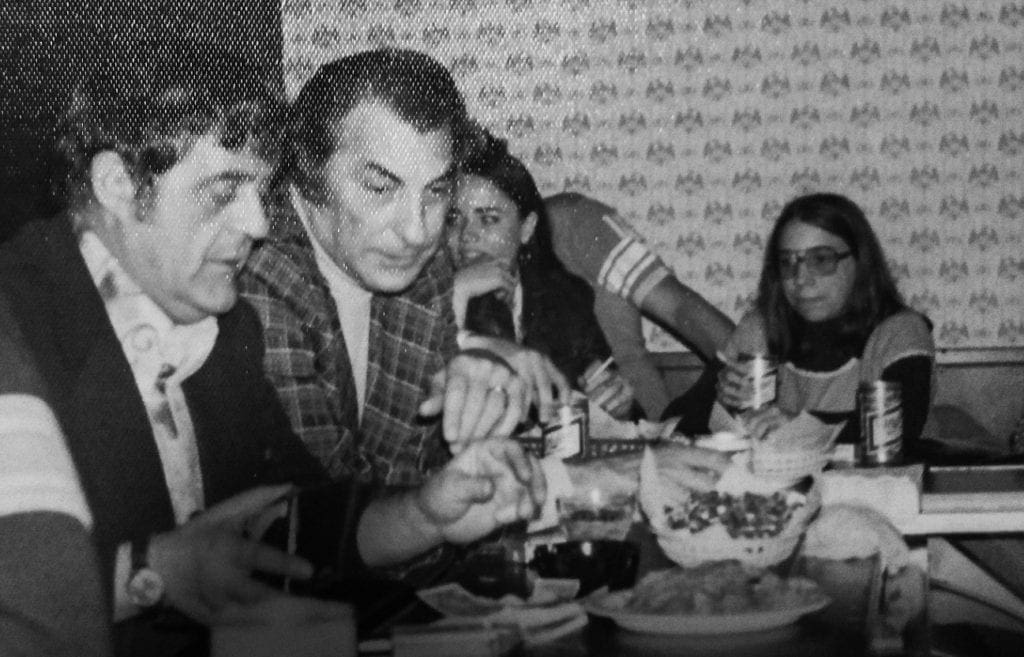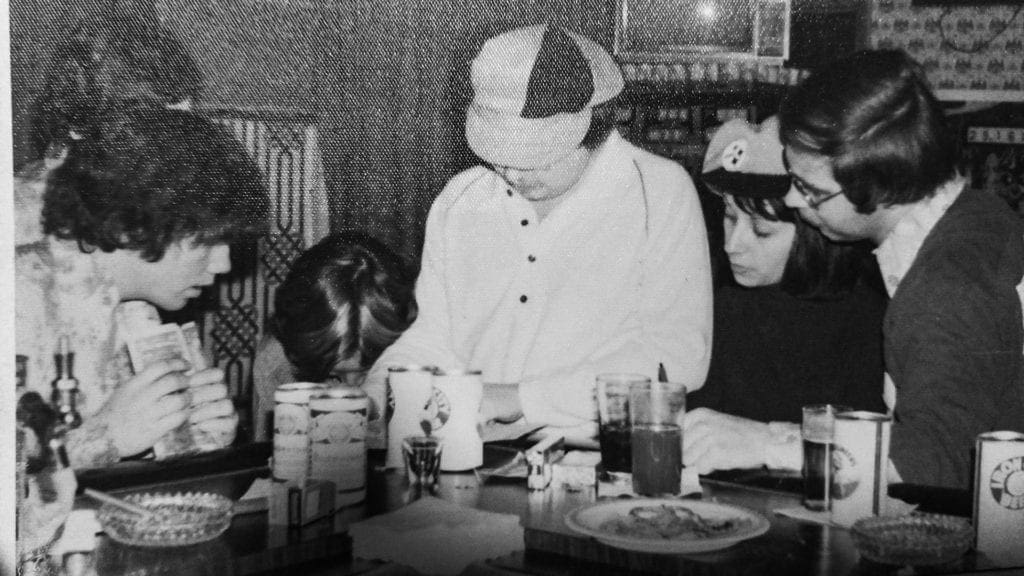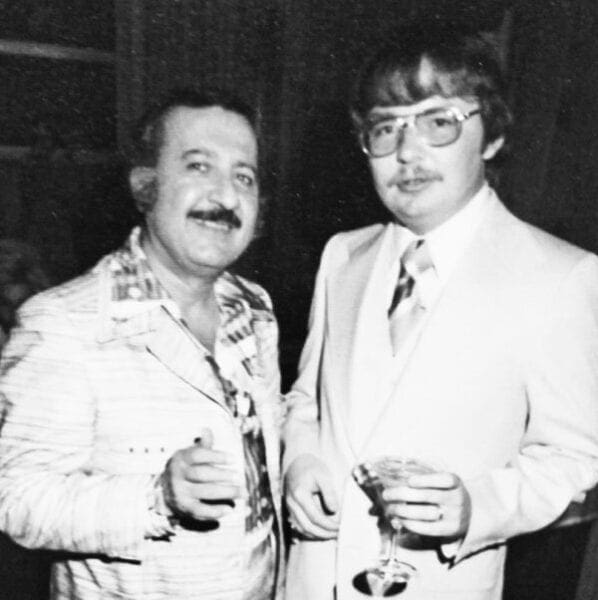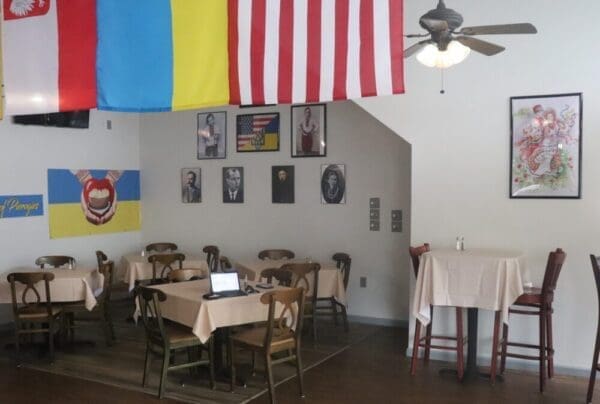Mac’s Club. S-Bridge. Harvey’s. Lou’s Landing. Under Glass. Woodie’s. Fabulous Fannies. Captain Ed’s. Eagle II.
And on Wheeling Island alone there were the Merrymint, Tom’s Finish Line, The Yacht Club, Mac’s Holiday, Harbor Lights, and Mr. Z’s.
And that’s to name a few.
Oh, and there was the Whistle Stop too, and that was Gary Maxwell’s place for about five years in the mid-to-late 1970s. It featured a railroad theme with signage and old-school lanterns because the train tracks ran past the joint just on the other side of Mt. de Chantal Road.
“We were crowded every night and packed on the weekends beginning at 5 p.m. on Fridays, and for a bunch of years that became the norm. I staffed the place based on the consistency of customers,” Maxwell said. “We had a good lunch crowd each day, and that was mainly because of the homemade soup one of my employees made.

“That soup … didn’t even matter what time of year it was. Our customers couldn’t get enough of it most days, and we also had burgers and whatever you could fry quick so those folks could get in and out,” he said. “The Whistle Stop was a good place for a lot of people back then, and it’s the one bar I had that I hear the most about. A lot of people went there apparently, but hey, I always had someone at the front door checking IDs on the busy nights.”
So why just five years?
“Most of bars back then would peter out, even though everything was good for three or four years,” Maxwell explained. “Once one closed, though, another would open at the same location. People just moved on back then. That’s the way it seemed, and that’s why most of the places I used to visit are gone today.
“Again, in those days and even now, it’s really different to have a bar that doesn’t get cycled out because something new opened close by or something like that,” he said. “Now I own Bernie’s, and that place has been there for 60 years, and we have places like Generations, the 19th Hole, and TJ’s that have been around for a while. But through the years, so many turned out just like the Whistle Stop did.”

It Wasn’t a Crime
While the bar owner is unable to explain why the Whistle Stop fizzled, he remains confident why so many men and women returned day after day for the five years it was open.
“In a lot of cases, it was because they could gamble on the machines, with the spot sheets or on the pool table, or by booking bets with a guy,” Maxwell said. “The machines had those popular games like Draw Poker and that cherry game, and they had a good run until law enforcement decided they didn’t like them anymore. I guess they didn’t like the fact that we were paying out.
“For a long time, everyone knew those machines were connected to organized crime, and no one really cared,” he insisted. “Those machines were widely accepted just like the mob was back in those days. As a guy who grew up between the 1950s and the 1970s, I can tell you that everyone knew somebody connected in some way. It was the only life we knew back then.”
A spot sheet was a list of the most important college football games and all the NFL games with point spreads included, and a player would circle particular numbers to indicate their chosen winners.
“Those spot sheets were really, really popular, and if you ran out of them, you had to make a quick call to get more because the customers would go somewhere else,” Maxwell explained. “My goal was to become the place that always had them so we would attract as many people as possible.
“It was a good side business because I made about $700 a week on those sheets, and that was really good money during those times. That would be like getting an extra two grand per week today,” he said. “That’s why so many people wanted to get in the bar business back then. If you were willing to do this and that and work with certain people, you could make a whole lot of money.”

Gets in Your Blood
A taco-serving bar named Roberto’s occupied the same building post-Whistle Stop, and for past couple of decades, Figaretti’s Restaurant has called it home.
Maxwell moved on, too, and after a gutting and renovation, he opened the Quarter Deck on River Road.
“We built a mini lighthouse to the front of it that remained until they cleared that property for the Gumby’s that’s there now,” he said. “We did very well there for about five years … again, five years. But, in this case, the only reason I sold that place was because I was getting a divorce, and that’s how those things work out.
“Another venture of mine was on 16th Street, but that bar burned down because the tenant that lived above decided to throw clothes over a space heater. So, once we got through all of that, I opened up Maxie’s at the bottom of Rock Point Road,” Maxwell explained. “That place, though, didn’t last long because it was a little rough, even for me. There were too many fights in that place.”
He’d had enough, Maxwell decided, so much so he opted to sell the business and start selling tires.
Tires?
“I had to get out. It was time,” he said. “So, tires it was, and I ended up being pretty good at it. But then I retired and needed something to do, really.
“Plus, once you’re in the bar business, it gets into your blood, and it stays there,” Maxwell admitted. “I missed it the whole time I didn’t own a bar, and it’s because of the people, so when I had the chance to buy Bernie’s, I thought, ‘What the hell?’ That was eight years ago, and Bernie’s is still mine.”
(Photos provided by Gary Maxwell Sr.)




